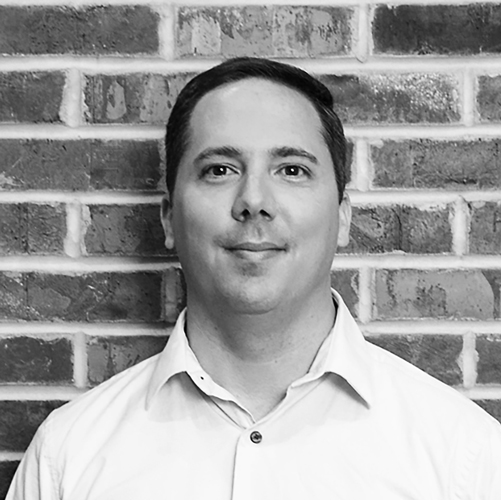Working in an industry that evolves on a continuing basis makes it difficult to establish hard-and-fast goals, let alone identify the road your company should take toward an uncertain future. In the energy business, however, Nick Thurlow says relying on gas and coal in a world that’s moving ever-closer to renewable energy is a challenge.

“How we get to a renewable future is still up for debate,” explains Thurlow, vice president of human resources and public affairs at InterGen, the Burlington, Massachusetts-based power generation firm. “But the fact that we need to go there is inarguable. We can’t just rely on what we knew.”
For Thurlow, that doesn’t mean tearing down power plants and building new ones. Instead, it means charting a course for an entirely new mind-set in a company with a more than twenty-year history. InterGen operates five power plants located in the United Kingdom and Australia that represent a total generation capacity of 4,213 megawatts. The company also has a new plant under construction.
In addition to InterGen’s HR strategy, Thurlow is also responsible for leadership and organizational development, talent management, employee engagement, and workforce planning. That all needs to tie together to enable an international organization to move the needle, and Thurlow finds himself in the unique position of bringing that sense of unity to the company.
Of course, changing the way that people at the company think about business isn’t exactly starting from square one. Thurlow points out that moving toward a new future includes capitalizing on the strengths you have. Nevertheless, for a company that had become used to handling matters in a regional way—opening it up to a global matrix that allows for both direct and indirect collaboration across all locations—can be a startling change.
“I’m used to being in industries that reorganize regularly,” Thurlow says of his HR background with technology companies that include Cabletron Systems, Boston Technology, and Comverse. “InterGen didn’t foresee the need to reorganize, frankly, until I got here. People didn’t feel like they needed to cross-communicate in the past. They wanted to be in charge of their own destinies.”
That regional mind-set is understandable, but moving toward an uncertain future doesn’t work if a company’s leadership isn’t on the same page. So Thurlow implemented a change methodology at InterGen, encouraging employee feedback, transparency, improved coordination, agility, and a committed workforce. The challenge, he says, was getting people to adjust to a new methodology toward an uncertain goal.
“This is an organization that’s culturally more adept at keeping its feet on the ground,” he says. “We’re trying to stretch our vision beyond today and make people realize we need to be more aspirational. Right now, we are repositioning toward a renewable future while optimizing our existing plants. We’re chasing a goal that’s well beyond our reach, but it’s a worthy pursuit because we simply can’t afford to stand still.”
With a focus on the company’s values of safety, integrity, teamwork, entrepreneurship, and community, Thurlow and his team set about working with InterGen’s executives and managers through curriculums focused on change management, operational processes, and the effects that a new mind-set would have on people, communications, and individual engagement with consumers and shareholders.
“We took a comprehensive view saying it doesn’t matter what the change is itself; it matters that you learn how to navigate it,” he says.
Throughout the process, Thurlow also engaged with the consulting firm Redwood & Co. to assist implementing the new HR strategy, which also helped empower team members.
“The key to crafting InterGen’s change methodology was focusing on change as a subtle mix of operational elements, human elements, and leaderships’ role in hosting space for change rather than directing it,” explains Carol O’Reilly, managing director for Redwood & Co. “People really owned the changes as something they did themselves. Rather than being directed to do something, they saw why they were doing it and contributed to how it was being achieved. With the executive team having worked through a clear vision, it was really about working alongside the people to bring that vision forward in a very practical way.”
Although such upheaval can cause long-time employees to leave or reconsider their options, he says the company’s ability to retain people provides solid feedback on the company’s new mind-set.
“The tenure of our employees is longer than most companies have in this industry,” Thurlow says. “We’ve had people who have left and returned. When they came back, they were embraced and felt better about their decision to come back.”
Much of that retention can be traced to the work Thurlow is doing in helping InterGen’s managers and leaders not only get the best out of their employees but also the best out of themselves.
“I learned early in my career that just trying to manage things as an HR person was not giving me enough depth and breadth to generate success,” Thurlow says. “It was when I was coaching executives and senior managers who had influence over large groups of people that I learned that what got you here won’t get you there. In other words, everyone has a certain set of skills, but those skills can and should be improved over time.”
Leadership roles require that gap to be bridged, and Thurlow says his favorite part of the job is bringing out the traits that many leaders might not have even known they had. Not only does that lead to improved interaction between managers and their teams, but it also spurs reinvestment from the leaders who can now work with an expanded toolbox.
“My motto is: ‘Don’t spend twenty years doing a year’s worth of work twenty times,’” Thurlow explains. “Learn and grow each year. Don’t be afraid of that. Push yourself to try new things.”
Photo: Bill Truslow Photography

